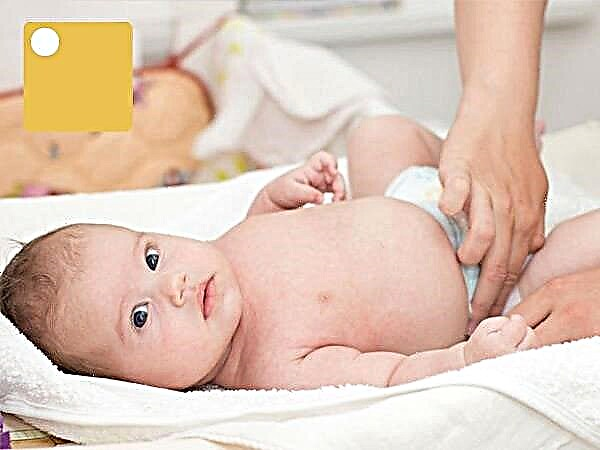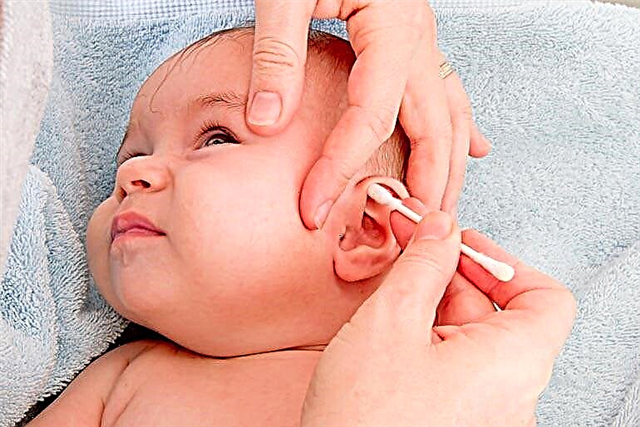
What helps a person to correctly assimilate and transform information received from outside in his consciousness? Of course, the ability to think logically. In this article, we'll talk about how this process develops in children of different ages.
What is it and why is it needed?
It is a mistake to believe that only older people have logical thinking. It originates in a person and begins to develop actively from the earliest years of life, gradually maturing as he grows up.
Logical thinking is the ability to reason reasonably, correctly build thought chains and fill them with meaning.
Defining concepts, comparing, generalizing, classifying, having your own judgment, drawing conclusions and inferences and at the same time being able to prove them - these are the possibilities of the thinking and cognitive process that logic gives a person.

Every parent dreams of raising a smart and successful person from their child. And for this you need to teach him to think correctly. And the goal of forming such an ability becomes a very interesting task, having decided which mothers and fathers will give their children the opportunity to behave thoughtfully and rationally in society, it is prudent to get out of any situations and difficult situations.
Helping a child develop the ability to think logically means the ability to master the tools for successfully passing the learning path not only in school, but also in subsequent educational institutions.
At what age to develop logic?
Experts believe that the earliest preparatory stage for the development of children's logic is the age from two to four years. During this period, the thinking of babies is visual and effective, that is they know the world through direct perception of all objects and phenomena, their brain, as it were, conducts a diagnosis of the environment. They touch, pick up, throw, drop, shift, taste literally everything that comes into their field of vision and hands.

Such actions give them information about things. Attention and memory at this age are still very poorly developed, therefore, the information received does not linger for a long time in consciousness, which is why frequent repetitions of previously performed actions occur.
But these are the so-called borderline years, in which the active preparation of consciousness for the development of intelligence begins.
And the beginning of the formation of children's logical thinking is considered to be about four years old.
At this time, children can already perform the simplest exercises, for example, to find an extra object from the proposed list: a cube, a doll, a teddy bear and house slippers. This is the most primitive technique for calculating the rudiments of logic. According to psychologists, most children of this age cope with such tasks.

Exercises and games for development
Specialists in the field of child psychology and pedagogy have developed a huge amount of didactic materials, programs and tasks for the development of logic in children. When creating and using them, of course, age-specific features of cognitive processes are taken into account. For example, a two-year-old is not able to complete a task designed for a four-year-old, and a seven-year-old will no longer be interested in solving problems for three and five years old.
This can be explained simply - they already have completely different levels of thought processes, which are accelerated and complicated every year.
It is customary to divide children into age categories according to their ability to perceive and process information.
Preschool children:
- 3-4 years;
- 5-6 years old.

Children of primary school age (primary school):
- 7-8 years old;
- 9 years;
- 10 years.
Children of secondary school age (adolescence):
- 11 years;
- 12-13 years old;
- 14-15 years old.
Children of senior school age (adolescence):
- 16-17 years old.
Modern information technologies allow you to entertain preschoolers and schoolchildren in an entertaining way and effectively increase the level of children's logical thinking.
Consider the nature of classes, exercises and games that develop logic for girls and boys of different age groups.

For preschoolers
Preschoolers are children who, as a rule, attend kindergartens and early development groups.I. In this group, children are usually divided into three categories: junior (2-3 years old), middle (4-5 years old) and senior (preparatory to school) - 6 years old.
A good prerequisite for the development of logic in kids 2-3 years old is the creation of conditions for active cognitive activity.
It is necessary to give them the opportunity to experiment with objects and actions. The simplest example is working with sand and water.
It's also important to pay attention the primary formation of ideas about colors, sizes and shapes. The ability to make the first elementary judgments and conclusions based on actions gives the development of speech and learning to express thoughts out loud: water flows, it can be poured, sand is poured, it can be poured, you can wet it and make a figurine, etc.
It is important to teach the child simple logical operations: grouping, synthesis, series creation. That is, to collect objects in groups according to one characteristic (color, shape), create a series of sequences (stringing the decreasing parts of the pyramid), construct simple parts (large lego parts).

At 4-5 years old, children become available to such a logical operation as comparison. Here it is important to expand the child's ideas about the surrounding reality, draw his attention to the diversity, variability and variability of events, teach the basics of analysis (divide the whole into parts), teach to find logical connections in nature (it is cold in winter, plants do not bloom and do not grow, so there are no bugs and spiders, there is no food for the birds, so they fly away).
In the preparatory period for school, preschool teachers use the same methods of developing logic as before, but the child must become more independent in solving any problem.
At this time, the sign-symbolic system of mental activity begins to develop (the beginning of work with schemes, signs, numbers). The improvement of such skills as comparison, classification, construction of sentences, simple proofs, systematization according to signs, isolation of differences, analysis of phenomena and objects, identification of patterns and even forecasting the consequences of any actions continues. At this stage, children are taught ordinal and quantitative counting within ten, the composition of the number five. Also, children learn to analyze the structure of various structures, reproduce them in other versions.

For younger students
Pupils of elementary grades are already very different in the level of logical thinking from children of preschool age. In the process of studying at school children learn to manage their thought processes and begin to think not only when they want to do it, but also when it is necessary to do it.
In the course of cognitive activity, thinking becomes conscious, voluntary, planned and programmed. Experts call this period a sensitive period, when conceptual thinking develops.
At this time, the verbal-logical or abstract-logical (abstract) type of comprehension begins to work. The inferences of first graders and second graders are based on clarity, and conclusions are made on the basis of comparing the judgment and the subject, phenomenon, eventI. Children from seven to ten years old gradually begin to master logical judgments, operate with concepts and proceed to generalization and logical conclusions.

For teenagers
Adolescence is a special period in human development and it has its own nuances in the formation of logical thinking. This is the transition from childhood to adulthood. Teenagers feel the need for independent knowledge of the world. At this time, thinking moves to a higher and more complex level of cognitive activity. It takes on features theoretical and reflective character. The learning process makes it possible to gradually master scientific concepts, the basics of theoretical and conceptual information handling.
And at this age, a young person can already master large volumes of educational material.
Psychological advice
Parents who set themselves the goal of helping their children develop logical thinking need to study in more detail various teaching methods on this topic. Then pick up according to the age of your child, various exercises, games and tasks, which, in your opinion, will provide a comfortable and pleasant learning process.

Educators and psychologists do not recommend conducting such training of the mind of children in a forced and obsessive form. It is necessary to gradually and gradually captivate the child, try to make it interesting for him to master the information offered.
Of course, it is necessary to create a comfortable environment, calmly and peacefully answer all questions of the child and give him the opportunity to express his own judgments.
In conclusion, I would like to add that nothing is impossible, everything can be developed and trained, including logical thinking. The main thing is to have a desire.



